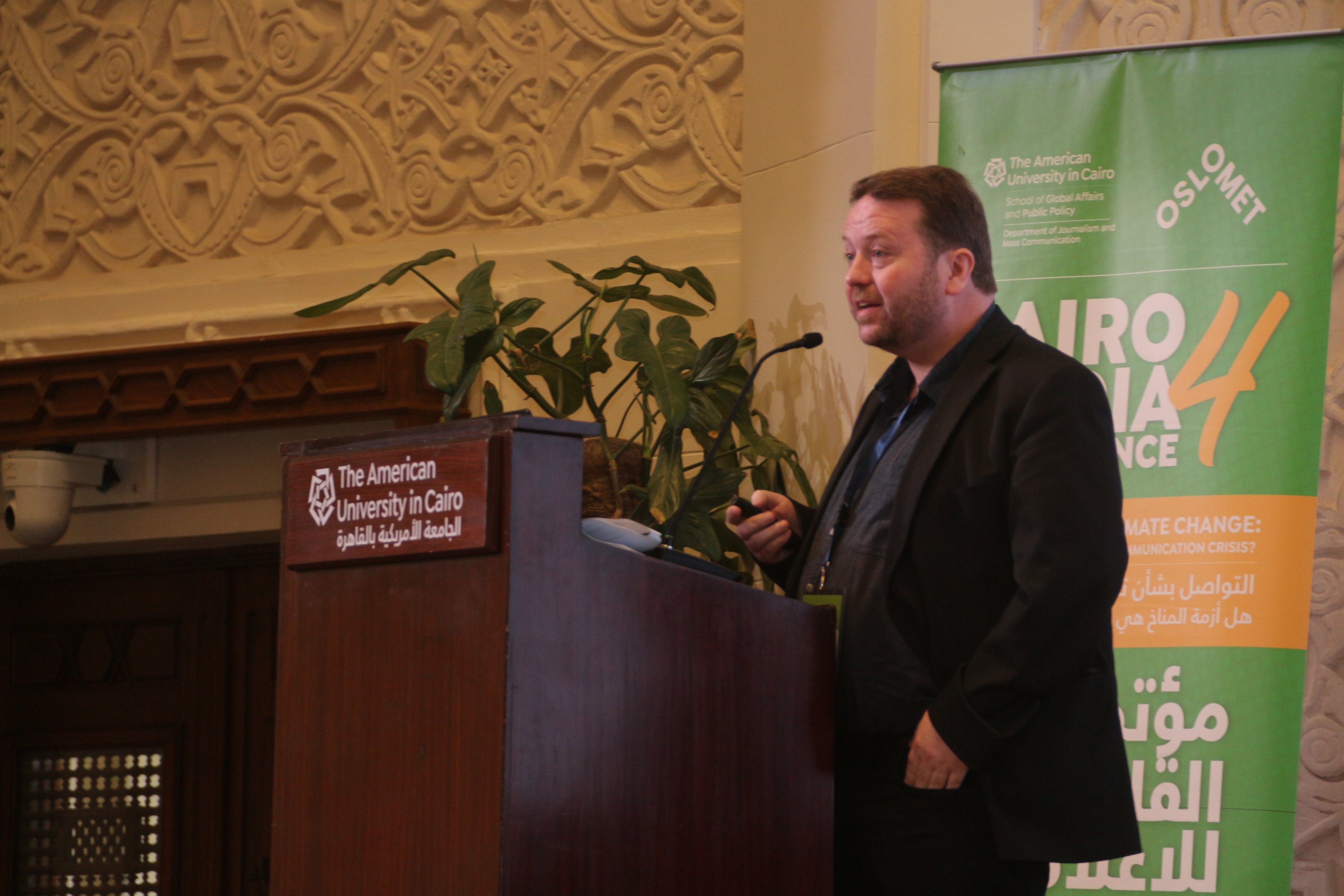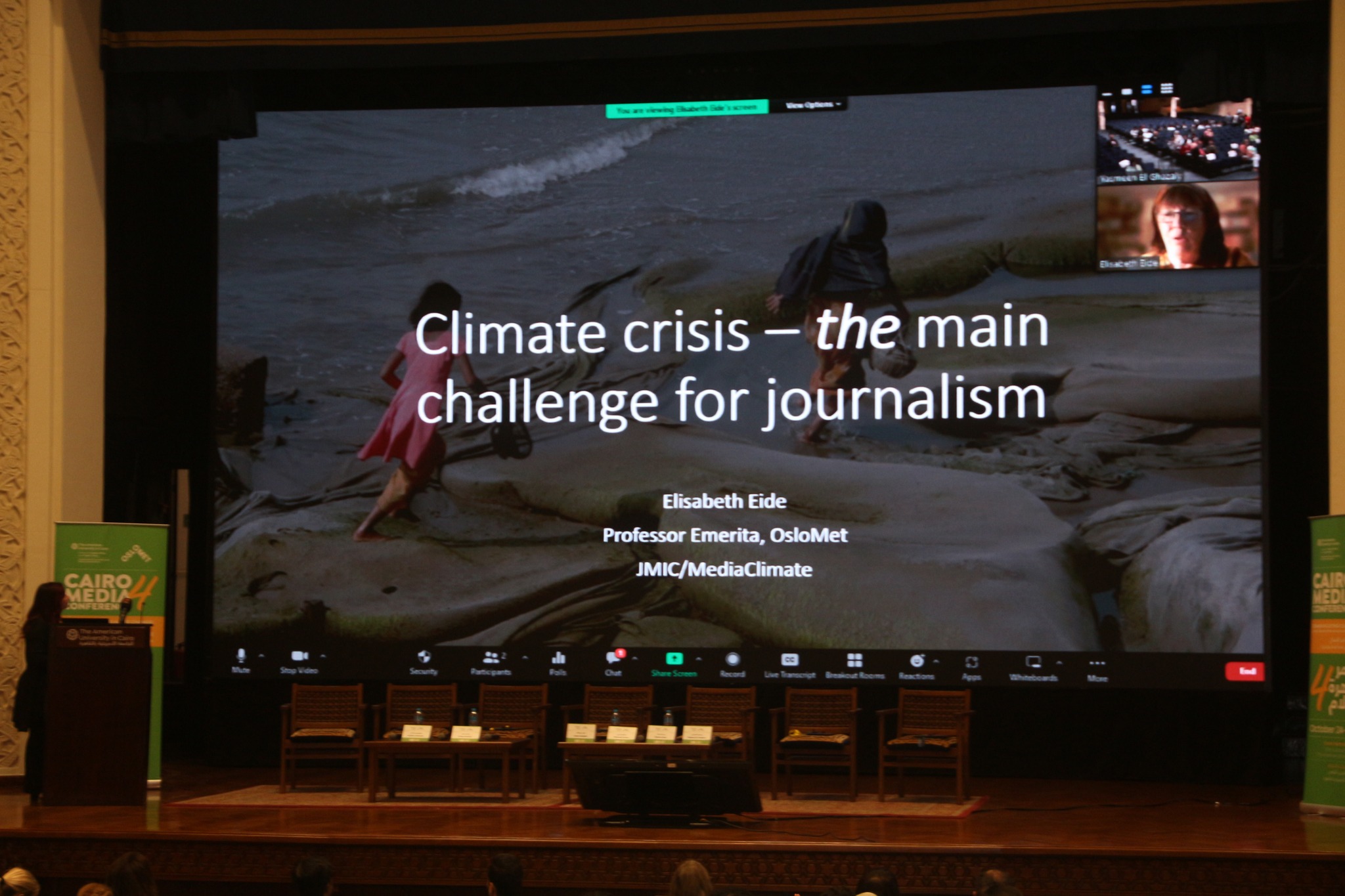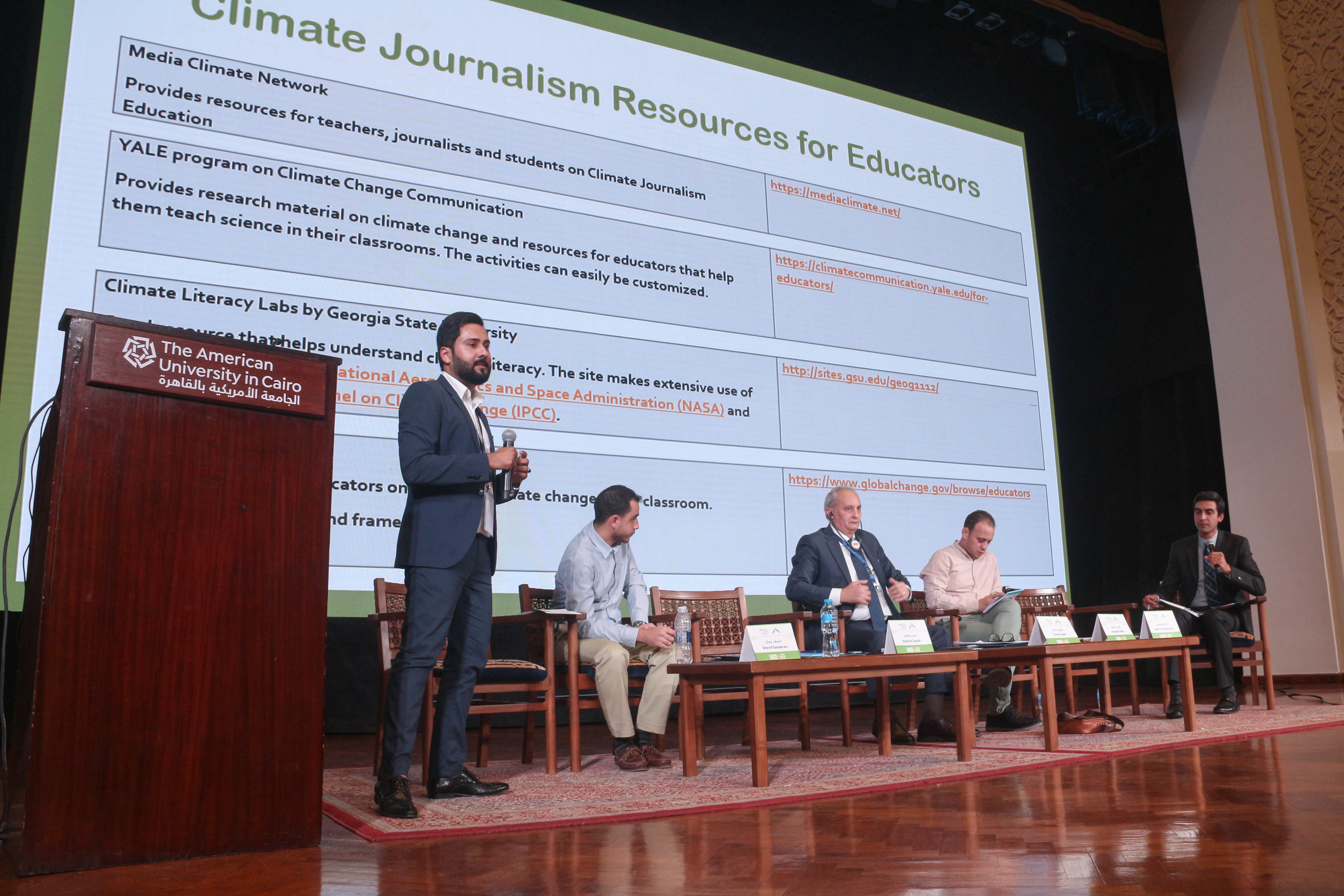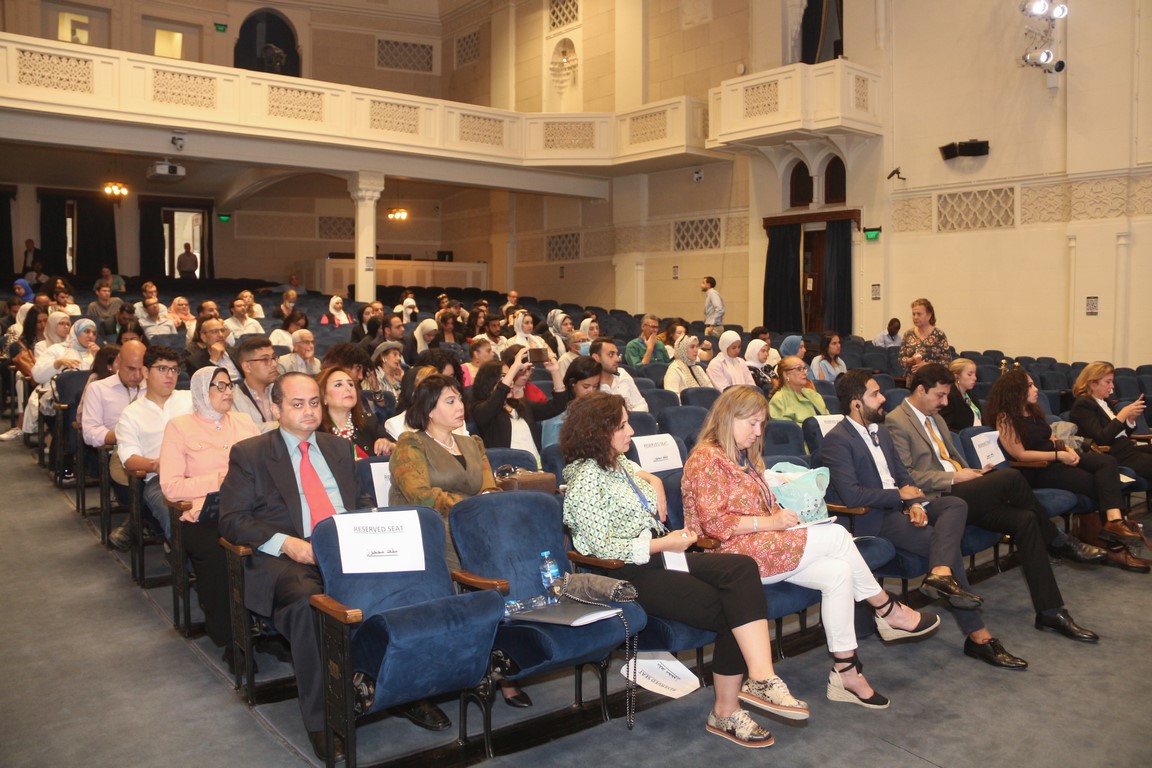
The 4th Cairo Media conference 23. and 24. October gathered more than 200 journalists and academics under the title “Communicating Climate Change: Is the Climate Crisis also a Communication Crisis?“ This year’s climate summit (COP27) starts in Sharm-el-Sheikh, Egypt, starting on November 7th.
The American University in Cairo (AUC) and JMIC/OsloMet were- co-organisers of the conference, which also included digital participants. Keynote speakers from Norway were Arne Jensen, senior advisor from the Association of Norwegian Editors and Professor Emerita Elisabeth Eide, JMIC and Co-chair of the MediaClimate Network. Three other members of the MediaClimate network, Prof. Risto Kunelius, Finland, Prof. Mofizur Rhaman, Bangladesh and Ass. Prof. Syed Muhammad Saqib, Pakistan, participated in different panels during the conference.

Elisabeth Eide
Professor Emerita, OsloMet University, Norway, Co-chair of the Media Climate Network

Arne Jensen
Senior Advisor to the Association of Norwegian Editors (Norsk Redaktørforening, NR)

Risto Kunelius
Professor of journalism, Helsinki University, Finland, and Co-Chair of the MediaClimate Network

Hildegunn Soldal
Head of Digital, NRK (Norwegian Broadcasting Corporation)

Tarjei Leer-Salvesen, a Norwegian Investigative Journalist
Prof. Eide delivered a presentation on, “Climate crisis – the main challenge for journalism”, and spoke about the roles and responsibilities of journalists covering the climate crisis. She highlighted the importance of solution-oriented journalism and shared a few good practices in climate journalism that include, coverage of energy solutions and grass-root oriented coverage, which linked local experiences to the climate science. She also shared some experiences from the MediaClimate youth project (presented on this site).

Professor at the University of Dhaka, Bangladesh and founding member of the MediaClimate Network, Dr. Mofizur Rhaman, shared his views on the topic, “How can emerging journalists and media professionals tell a better climate change story?”. Prof. Mofiz talked about the challenges climate journalists face in finding angles for their stories and connecting their stories to the science of global warming. He emphasized on the need for local climate journalists to have knowledge of global sustainable development goals so they are able to understand how the global decisions impact local policies of their countries: “climate journalists shouldn’t just focus on fear, they should focus on hope as well”.

Assistant Professor of Mass Communication at Forman Christian College (A Chartered University), Lahore, Pakistan and member of the MediaClimate Network, Syed Muhammad Saqib, shared his views on “The Hope factor”, and spoke on the climate crisis situation of Pakistan and stats on the climate literacy among the public of Pakistan. Mr Saqib highlighted the importance of climate journalism education to help prepare future journalists and turn eco-anxiety into eco-compassion through the quality climate coverage. He sees climate journalism education as a hope factor that can help improve the climate literacy among the public, which eventually aids climate action. Mr Saqib concluded his presentation by sharing a few resources for climate journalism educators that they can use in their classes while teaching the course.

About:
Appr 230 participants.
Journalists/editors: 38 percent, from many different outlets
Media educators/professors: 15 percent, from nine different universities
Students: 45 percent
Diplomats: two percent
